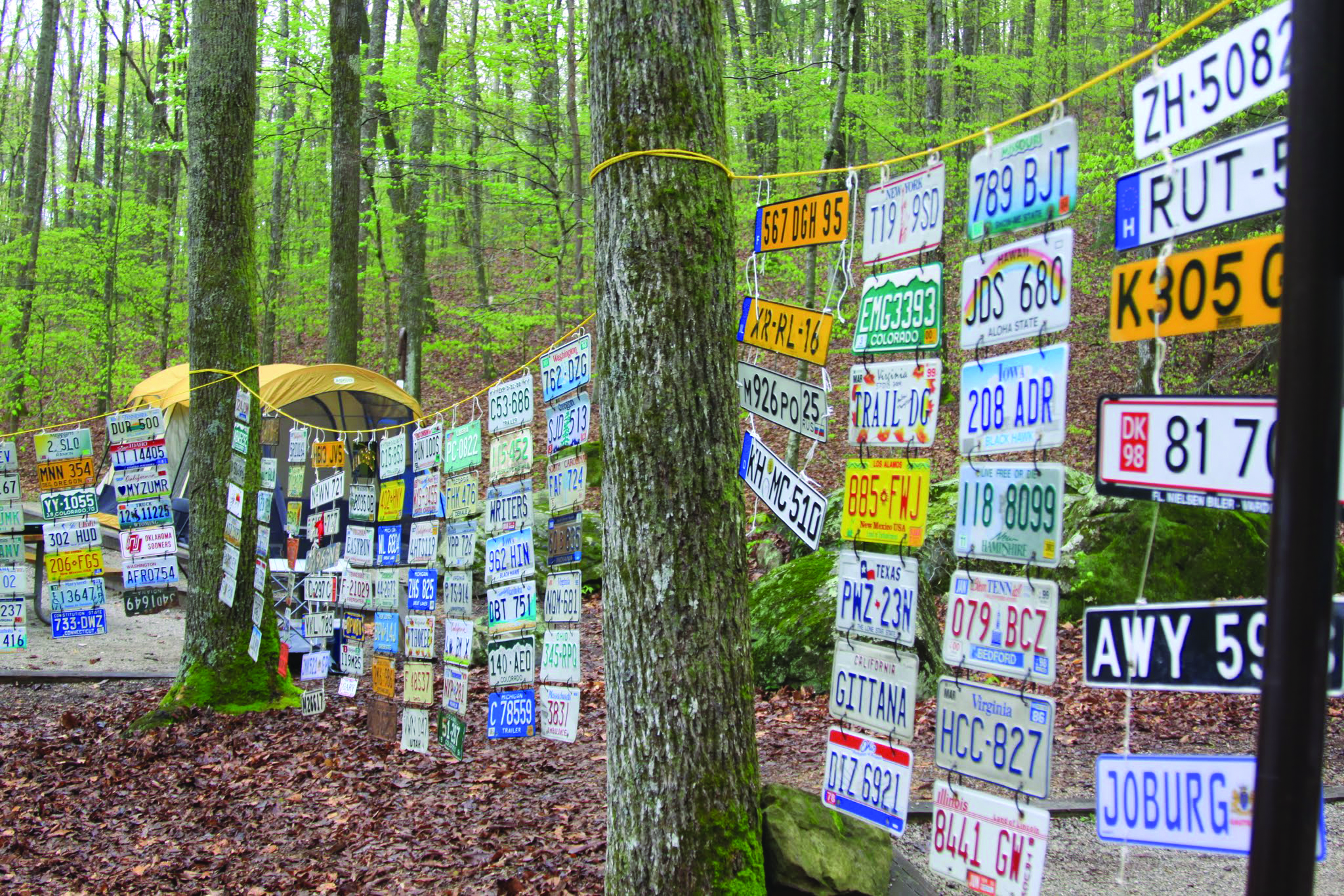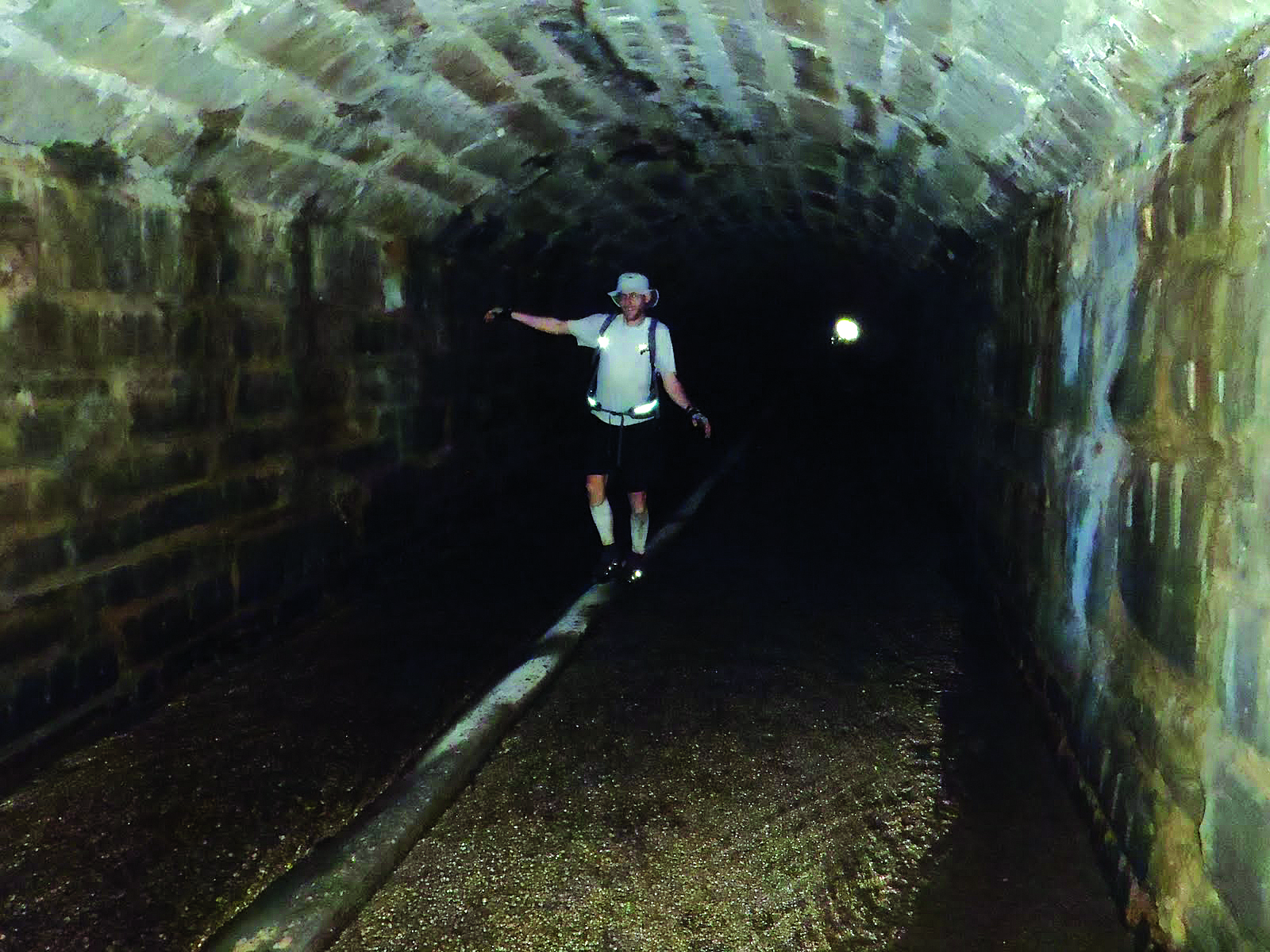"what is it you want to know about this year's race? we have runners from 21 states and 9 foreign countries. there will be a lot of difficult climbs and descents. ultimately, most will fail to complete the journey...possibly all." - laz
I was not at all surprised to receive this email late at night, in fact I never expected to receive it at all. Lazaras Lake is a legend, an elusive figure, a leader of a cult.
Lore surrounds this particular race like none other. Regulars are protective over its merits and virgins are thirsty just to be invited. Tales of its beginnings and origin are passed from runner to runner like a massive, worldwide game of telephone.
Runners from all over vie for an exclusive spot on the list, or even a spot on the "wait list." A few dozen get a chance to fail every year. In its decades of existence, only the fortunate have actually completed the Herculean task.
It's not Colorado's Leadville 100 or Death Valley's Badwater. It's the Barkley Marathon and it's held each spring just hours away at Tennessee's Frozen Head State Park.
When I first heard of the "marathon" it was understood that I would never hear more about the 100-miler than that reference. No one had been able to find out more about the race. But I couldn't leave it alone-the idea of a super popular, yet clandestine ultra-marathon intrigued me. Why wouldn't it? Runners are absolutely charmed by it. Maybe it's the registration process, which I hear consists of an opportune email, an essay, poem or interpretive dance and the sacrifice of a license plate from your home state or country with a tithe of $1.60.
Anywhere from 30 to 40 runners get invited each year-and there is always one sacrificial virgin. There's lingo, code words and fake emails. Instead of a congratulatory acceptance to the race, you're granted condolences. Runners eat this challenging mystique up with a spoon. Lazarus, Laz, or Gary Cantrell, the mystic, the organizer of the race, sends out emails and messages over Facebook to his people.
Void of any capitalization but full of broken poetry, he uses his voice as a siren's call. It's intoxicating.
After pouring over Google and reaching out to contacts, I thought I had many leads about the race. I didn't. Some people were helpful, others flat out refused to talk, thinking it might mar their chances of competing. Upsetting the culture is not an option.
Beyond the information I found online, it was nearly impossible to find out from a true source about the race.
Sure the Barkley has been covered by the New York Times, Washington Post and others. The phenomenon is there. Like two-time Barkley attempter Zane Smith of Columbia, Tennessee, you either get it or you don't.
Zane is reluctant even to call me back. After an email and a last ditch effort before deadline, I try his place of work, minutes before he's supposed to leave. He tells me over the phone he grew up in Tennessee, and has always, well not always, but always known about the race.
He's completed local races like the Lookout Mountain 50-milers and the Stump Jump. He's been to Leadville and Hard Rock. He's finished those, too. As an ultra runner, he eventually found a way into Barkley, though he won't tell me how. He's never finished Barkley, and hasn't been back since 2012.
"But I'm partial to it," he tells me. "It's home."
I ask him the same thing I've asked, or tried to ask, every runner I've come across. What is it about this race that got you involved? Why would you ever put yourself through something so grueling such as this?
"The Barkley is special. A lot of that is the people who put it on and the people who show up," he says. "It's incredible."
I've never been off the record so much for a subject than this. It's uncomfortable, it's fascinating.
Runners either want to try this, 100 percent, or they don't. You're either obsessed or you're not. Runners of the Barkley would actually deter, deceive, deflect people from entering, if asked. So I try to dig deeper.
It's commonly accepted by many ultra runners that the Barkley is the toughest 100- miler around. It's arguably as hard to apply to the race as to finish it, what with all of the idiosyncrasies involved. But those who keep coming back to Tennessee from California, Canada or even Europe, know that the five 20-mile loops are each their own accomplishment.
Many try, less than 2 percent have finished. It began in 1986, after Laz learned that Martin Luther King Jr.'s assassin James Earl Ray was only capable of traveling 8 miles in 54 hours after his 1977 escape from Brushy Mountain State Penitentiary.
That is the inspiration of the race, and it is still part of the legend today.
Back then the race started as a 50-miler. No one finished. Frozen Ed, or Ed Furtaw, the first man to finish the 55-mile race, has actually written a book about the Barkley. He's tried to finish the full Barkley since.
The weekend of the race, competitors and loved ones descend upon Frozen Head to prepare. Certain pre-race rituals take place. There are, after all, no aid stations. If you fail, quit, give up, you still must return to the head of the race to face your fate.
The physical toughness of the ever-changing route is only a part of the challenge. I've been told that the race starts with only an hour's notice in the middle of the night, or at the light of Laz's cigarette.
As any Barkley regular will tell you, it's a mission to even find out how to register for the race. Laz only accepts certain emails at certain times, and sometimes fake emails and registration guidelines are supplied to virgins, someone who has never competed before. Laz will even toy with accepted runners - staggering his condolence letters to some to make them sweat it out.
Running in remote parts of Tennessee through day and night is not only dangerous for physical reasons. There are harrowing tales of encounters with boars, bears and other creatures who inhabit the forests. Many suggest running with a knife strapped to you ... just in case.
Runners are instructed that they can not ever exit the route, except that there is not a marked route, there is not a path, there is not a way. It changes often, and runners are required to tear pages corresponding to their race numbers out of books left along the way to give proof that they're adhering to the journey. Runners have gotten lost. So I hear. The cutoff time is 60 hours.
To put things in perspective, the Leadville 100, a race across the Rockies, should be finished in less than 30. You're travelling more than 12,000 feet in elevation change overall, if you finish. If you don't finish, disqualify yourself or are injured, you return to base camp to the sound of Taps, with a smile on your face.
Many say the Barkley is a lesson in learning to fail. The climb of the 20-mile loop is absolutely unbearable. Saw briars prick and slice the legs of runners through the course, as runners make their way through sections called Leonard's Buttslide, Testicle Spectacle and Meth Lab Hill. The conditions of the race are unpredictable. Held traditionally at the end of March, the race time of 60 hours can show a range of weather patterns. Rain, cold, sometimes heat.
But aside from the cloaks and daggers, in this day and age you can track down information about the Barkley Marathon. In fact, some extensive Googling will yield dozens of results, telling you almost all you'd ever want to know about the journey, unless you're an ultra runner.
Then you want it to be a secret. It's a part of the Barkley. But there's even a purportedly unofficial Barkley Marathon Twitter account that pushes out words of wisdom to its followers like this:
"the barkley is a chance to see how much your body and mind will take, before they both agree that it is time to quit."
Runners lament rejection or praise "condolences" on Twitter and Facebook. And each year, regular runners trying to defeat the Barkley and finishers meet again at Frozen Head State Park for a reunion of sorts. It's not normal, it's not healthy, but it's a part of the culture and community.
Laz cares about his runners, and the runners care about Laz. It's a sadistic, cultish family of sorts.
Just last month, a Facebook post on a Barkley Marathons Facebook page announced the addition of the Barkley Classic, that would be a shorter, 30-mile race along marked trails in parts of Frozen Head State Park. Laz has been getting comfortable with the Internet lately, granting more interviews and talking about his "beginner race."
Is this a joke? I wonder. It seems so out of character for a race like this. He tries to taunt potential competitors who will still likely flock to the registration page with his lines. The winner of the race will be granted a position in the original Barkley.
"better not delay... something bad like this doesn't come along every day."
As I try to coax more out of Zane, I tell him more about the things I've read. I've read and read reports of runners.
He listens in silence as I try to gain membership into this club, earnest with the desire to learn firsthand from someone who has delved into this wicked experience. I'm probably never going to run a 100-mile race, let alone the Barkley. But I'm still hooked.
"No, I think you've got it," he tells me. "You get what it's about."



